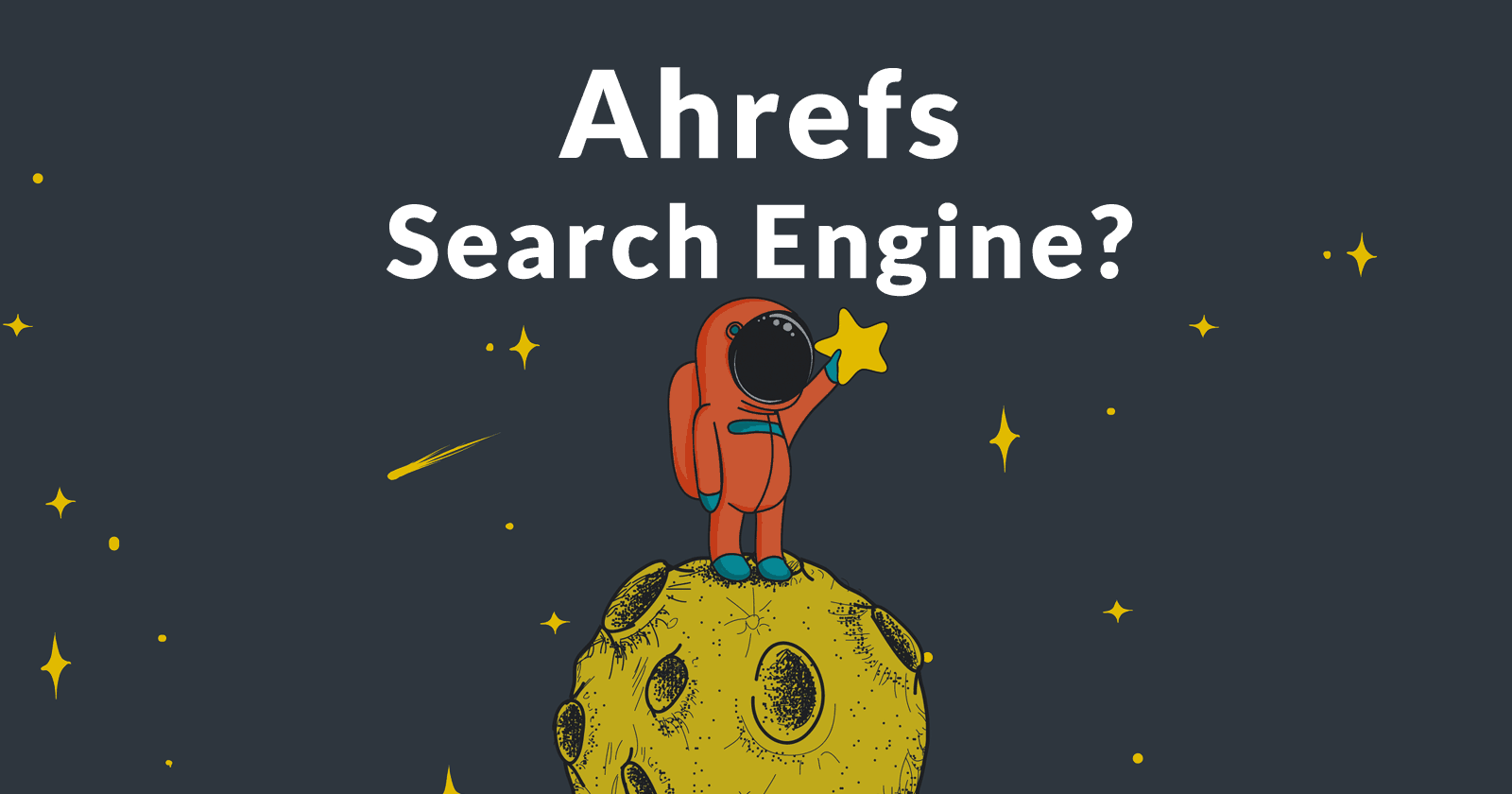Ahrefs CEO Dmitry Gerasimenko announced a plan to create a search engine that supports content creators and protects users privacy. Dmitry laid out his proposal for a more free and open web, one that rewards content creators directly from search revenue with a 90/10 split in favor of publishers.
Goal for New Search Engine
Dmitry seeks to correct several trends at Google that he feels are bad for users and publishers. The two problems he seeks to solve is privacy, followed by addressing the monetization crisis felt by publishers big and small.
1. Believes Google is Hoarding Site Visitors
Dmitry tweeted that Google is increasingly keeping site visitors to itself, resulting in less traffic to the content creators.
“Google is showing scraped content on search results page more and more so that you don’t even need to visit a website in many cases, which reduces content authors’ opportunity to monetize.”
2. Seeks to Pry the Web from Privatized Access and Control
Gatekeepers to web content (such as Google and Facebook) exercise control over what kinds of content is allowed to reach people. The gatekeepers shape how content is produced and monetized. He seeks to wrest the monetization incentive away from the gatekeepers and put it back into the hands of publishers, to encourage more innovation and better content.
“Naturally such a vast resource, especially free, attracts countless efforts to tap into it, privatize and control access, each player pulling away their part, tearing holes in the tender fabric of this unique phenomena.”
3. Believes Google’s Model is Unfair
Dmitry noted that Google’s business model is unfair to content creators. By sharing search revenue, sites like Wikipedia wouldn’t have to go begging for money.
He then described how his search engine would benefit content publishers and users:
“Remember that banner on Wikipedia asking for donation every year? Wikipedia would probably get few billions from its content in profit share model. And could pay people who polish articles a decent salary.”
4. States that a Search Engine Should Encourage Publishers and Innovation
Dmitry stated that a search engine’s job of imposing structure to the chaos of the web should be one that encourages the growth of quality content, like plant a support that holds a vine up allowing it to consume more sunlight and grow.
“…structure wielded upon chaos should not be rigid and containing as a glass box around a venomous serpent, but rather supporting and spreading as a scaffolding for the vine, allowing it to flourish and grow new exciting fruits for humanity to grok and cherish. ”
For chaos needs structure to not get torn apart by its own internal forces, and structure needs chaos as a sampling pool of ideas to keep evolution rolling.”
Reaction to Announcement
The reaction on Twitter was positive.
Russ Jones of Moz tweeted:

Several industry leaders generously offered their opinions.
Jon Henshaw
Jon Henshaw (@henshaw) is Senior SEO Analyst at CBSi (CBS, GameSpot, and Metacritic) and founder of Coywolf.marketing, a digital marketing resource. He offered this assessment:
“I appreciate the sentiment and reasons for why Dmitry wants to build a search engine that competes with Google. A potential flaw in the entire plan has to do with searchers themselves.
Giving 90% of profit to content creators does not motivate the other 99% of searchers that are just looking for relevant answers quickly. Even if you were to offer incentives to the average searcher, it wouldn’t work. Bing and other search engines have tried that over the past several years, and they have all failed.
The only thing that will compete with Google is a search engine that provides better results than Google. I would not bet my money on Ahrefs being able to do what nobody else in the industry has been able to do thus far.”
Ryan Jones
Ryan Jones (@RyanJones), is a search marketer who also publishes WTFSEO.com said:
“This sounds like an engine focused on websites not users. So why would users use it?
There is a massive incentive to spam here, and it will be tough to control when the focus is on the spammer not the user.
It’s great for publishers, but without a user-centric focus or better user experience than Google, the philanthropy won’t be enough to get people to switch.”
Tony Wright
Tony Wright (@tonynwright) of search marketing agency WrightIMC shared a similar concern about getting users on board. An enthusiastic user base is what makes any online venture succeed.
“It’s an interesting idea, especially in light of the passage of Article 13 in the EU yesterday.
However, I think that without proper capitalization, it’s most likely to be a failed effort. This isn’t the early 2000’s.
The results will have to be as good or better than Google to gain traction, and even then, getting enough traction to make if economically feasible will be a giant hurdle.
I like the idea of compensating publishers, but I think policing the scammers on a platform like this will most likely be the biggest cost – even bigger than infrastructure.
It’s certainly an ambitious play, and I’ll be rooting for it. But based on just the tweets, it seems like it may be a bit too ambitious without significant capitalization.”
Announcement Gives Voice to Complaints About Google
The announcement echoes complaints by publishers who feel they are struggling. The news industry has been in crisis mode for over a decade trying to find a way to monetize digital content consumption. AdSense publishers have been complaining for years of dwindling earnings.
Estimates say that Google earns $16.5 million dollars per hour from search advertising. When publishers ask how to improve earnings and traffic, Google’s encouragement to “be awesome” has increasingly acquired a tone of “Let them eat cake.”
The reaction on Twitter was almost cathartic and generally enthusiastic because of longstanding perception that Google is not adequately supporting the content creators upon which Google earns billions.
Will this New Search Engine Happen?
Whether this search engine lifts off remains to be seen. The announcement however does give voice to many complaints about Google.
No release date has been announced. The scale of this project is huge. It’s almost the online equivalent of going to the moon.
Read the Twitter announcement here.
More Resources
- 14 Great Search Engines You Can Use Instead of Google
- How Search Engine Algorithms Work: Everything You Need to Know
Images by Shutterstock, Modified by Author
Screenshots by Author, Modified by Author


